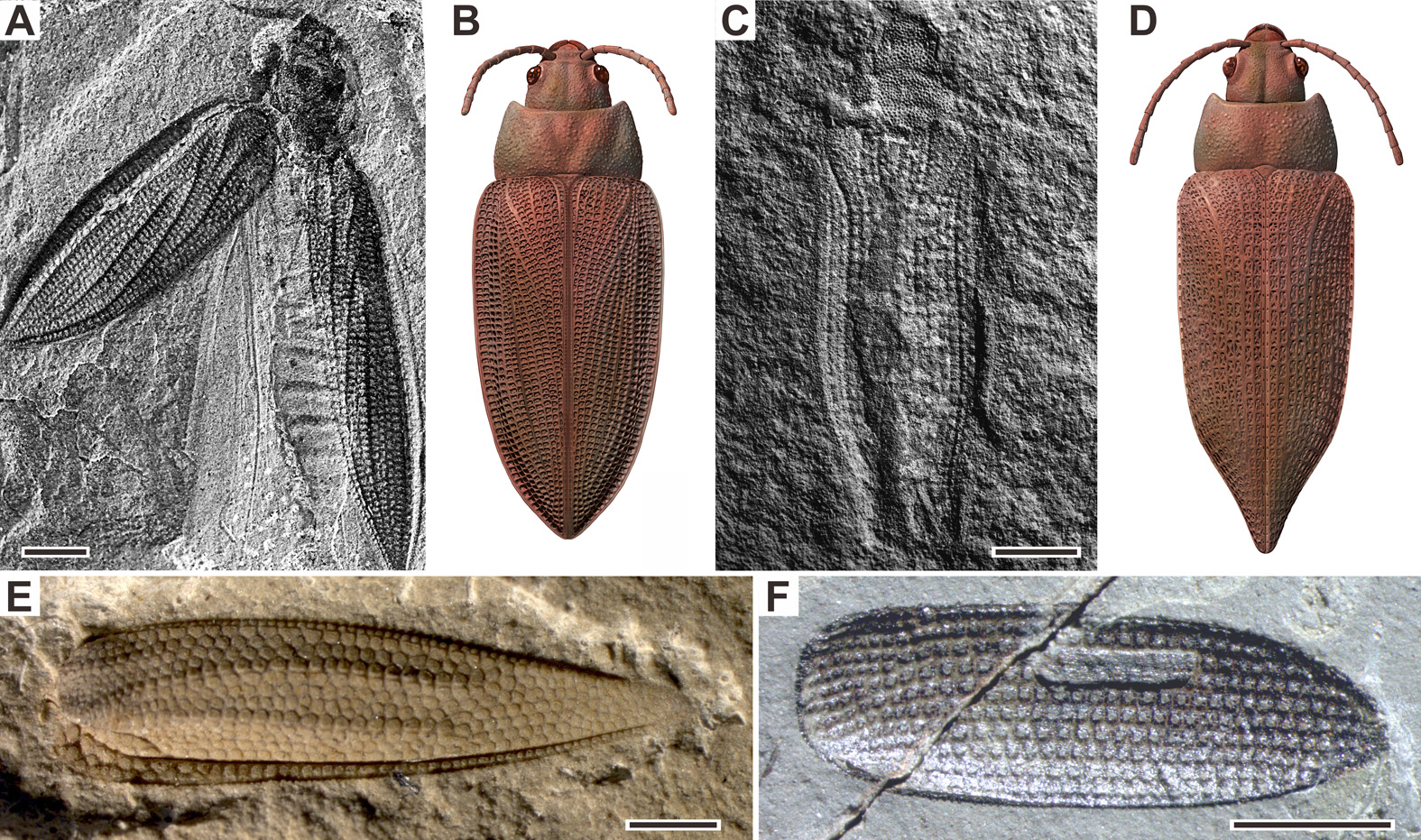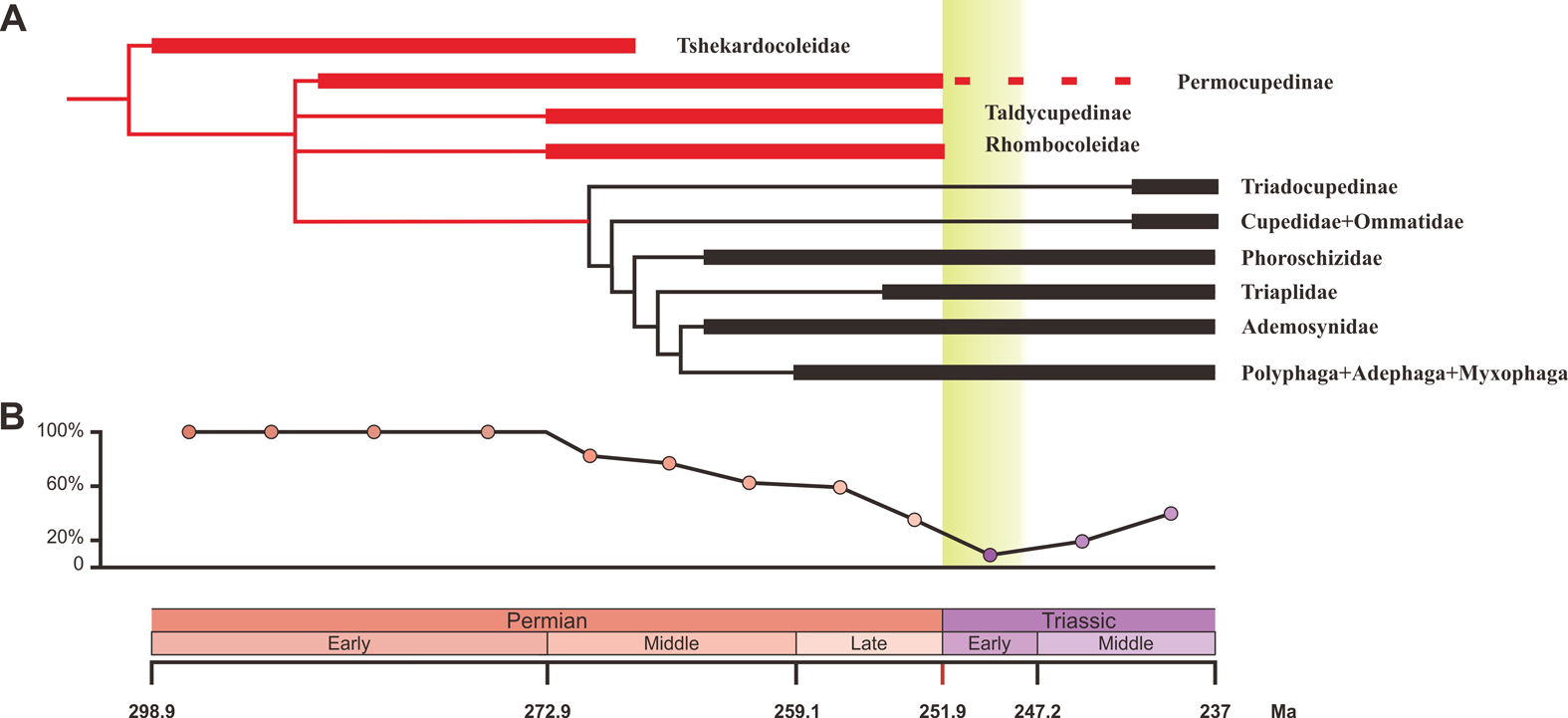The end-Permian mass extinction (EPME) led to a severe terrestrial ecosystem collapse. Insects have diversified over the past approximately 400 million years and account for roughly half of the biodiversity on Earth today. However, the ecological response of insects to the EPME remains poorly understood.
Beetles (Coleoptera) are the most speciose group of extant insects, with a stratigraphic range dating back to at least the lowest Permian. They have a rich fossil record since the Permian and display a wide array of lifestyles. Their fossil record thus offers a unique and complementary perspective for studying the ecological response of insects to the EPME.
Recently, postgraduate researcher ZHAO Xianye, Prof. WANG Bo from the Nanjing Institute of Geology and Palaeontology of the Chinese Academy of Sciences (NIGPAS), and other researchers from China, Russia, the USA and UK analyzed the evolutionary history of early beetles.
Their findings suggest that xylophagous (feeding on or in wood) beetles probably played a key and underappreciated role in the Permian carbon cycle and early archaic beetles experienced severe ecological consequences of end-Permian deforestation.
These results further provide new insights into the ecological role of insects in deep-time terrestrial ecosystems as well as the ecological response of insects to deforestation and global warming.
The study was published in the international academic journal eLifeon Nov.8.
The research team compiled an updated database of beetles from the Early Permian to Middle Triassic based on the taxonomic revision of fossils. They analyzed the evolution of taxonomic diversity, morphological disparity and palaeoecological shifts of beetles from the Early Permian to Middle Triassic through phylogenetic and palaeoecological reconstructions and morphospace analyses of fossil material.
The suite of analyses show that Permian xylophagous beetles suffered a severe extinction during the EPME largely due to the collapse of forest ecosystems, thus resulting in an Early Triassic gap of xylophagous beetles. New xylophagous beetles appeared widely in the early Middle Triassic, which is consistent with the restoration of forest ecosystems.
Permian beetles probably played an important ecological role in forest ecosystems because most Permian beetles were probably xylophagous insects that consumed living and dead woody stems. Furthermore, xylophagous beetles may have been responsible for the decrease of oxygen concentrations in the Permian. The research highlights the ecological significance of insects in deep-time terrestrial ecosystems.
Extant insects are suffering from dramatic declines in abundance and diversity largely due to anthropogenic deforestation and global warming. However, xylophagous insects have been largely neglected in studies of the current extinction crisis. The current study may help researchers better understand future changes in insect diversity and abundance and the consequences of such developments as the world faces global environmental change.
This research was supported by the Chinese Academy of Sciences and the National Natural Science Foundation of China.

Fig. 1 Examples of Permian beetles and reconstructions. (Image by NIGPAS)

Fig. 2 Phylogeny of early beetles (A) and genus percentages of xylophagous groups (B) (Image by NIGPAS)
Contact:
LIU Yun, Propagandist
Email: yunliu@nigpas.ac.cn
Nanjing Institute of Geology and Palaeontology, Chinese Academy of Sciences
Nanjing, Jiangsu 210008, China
